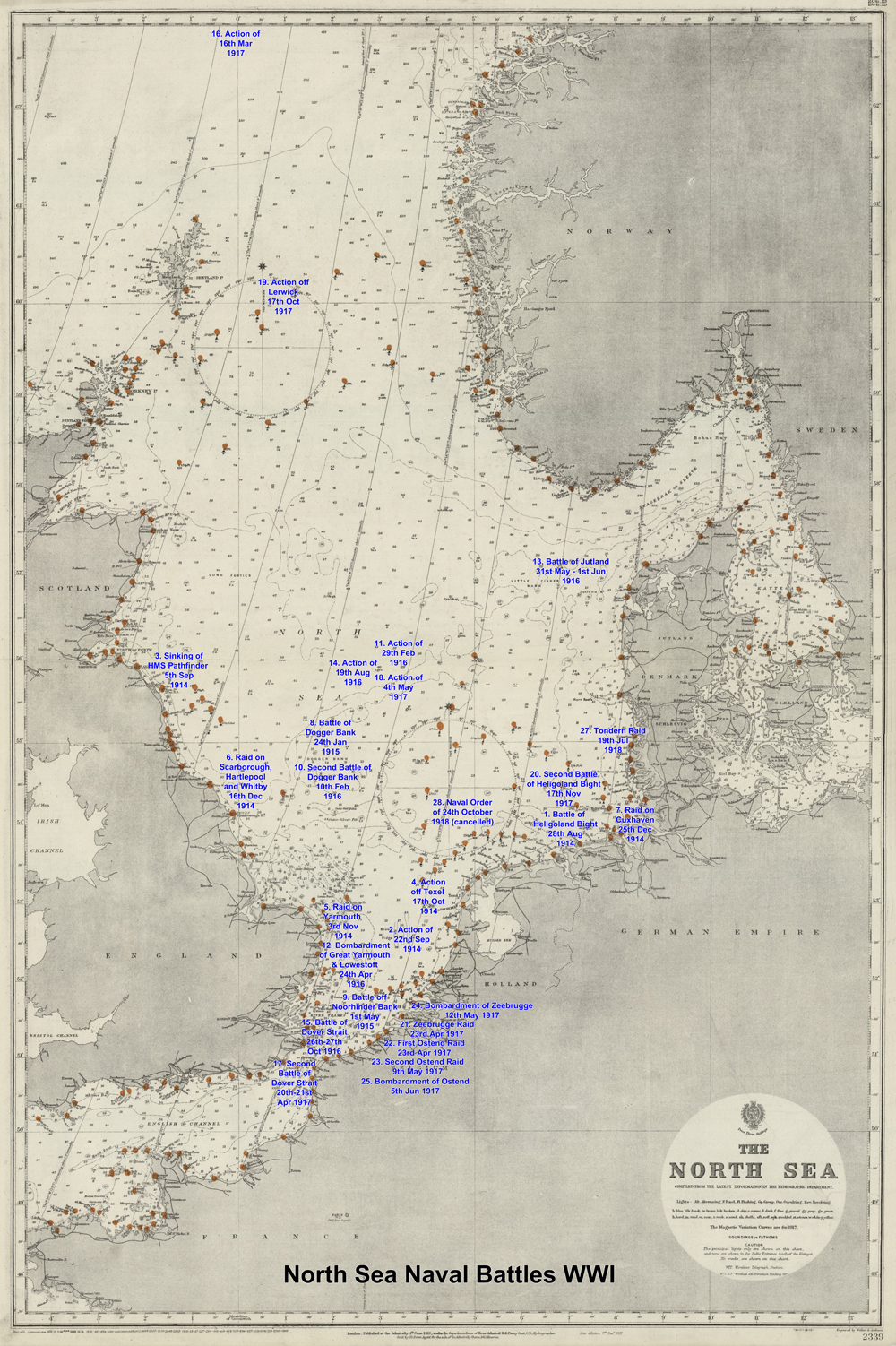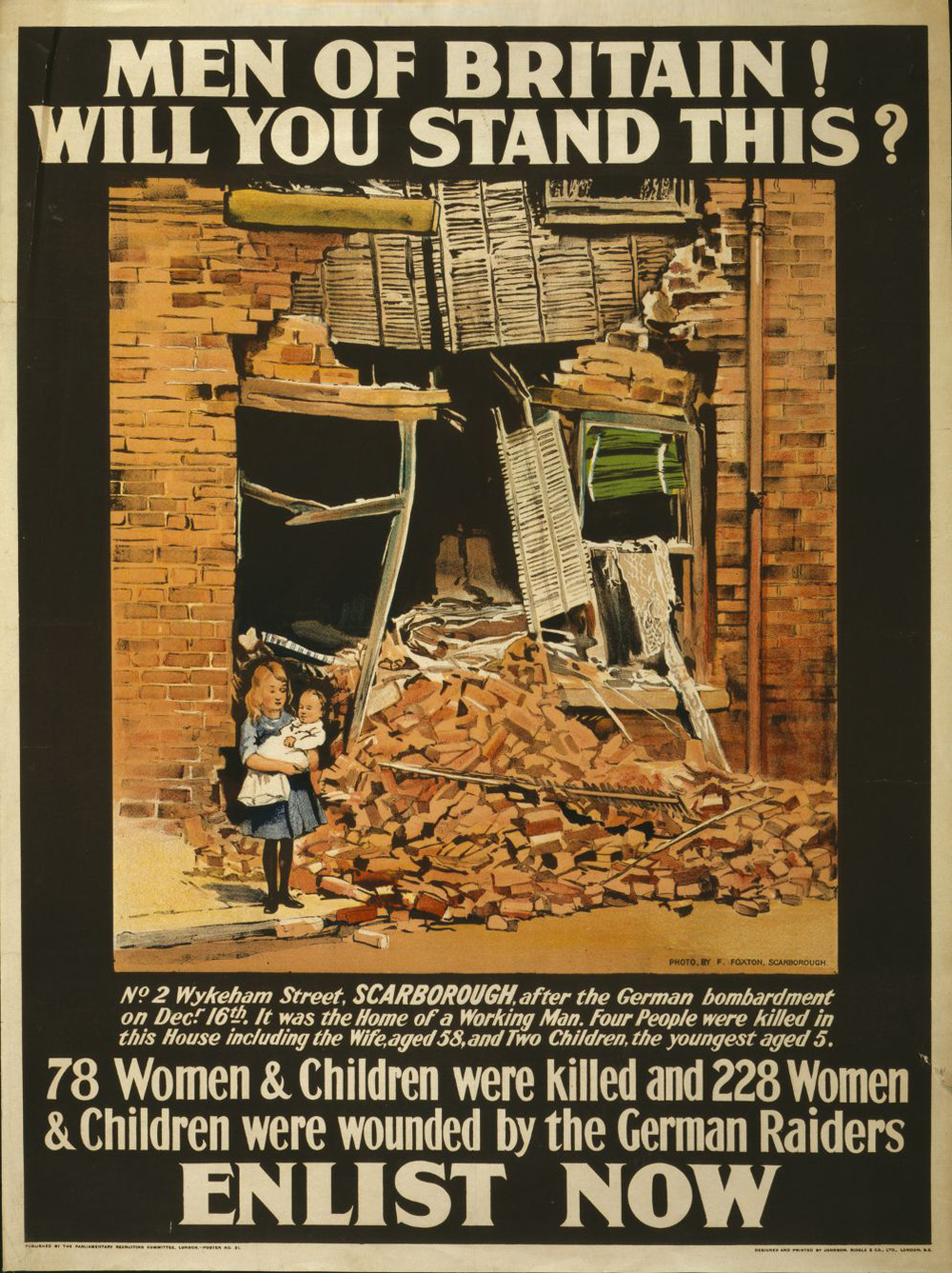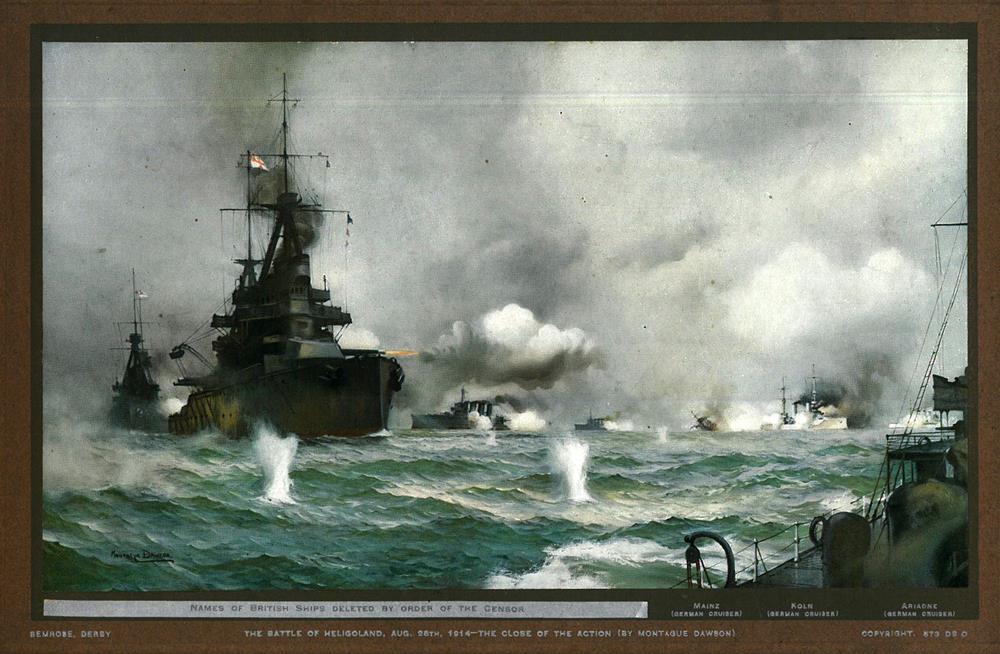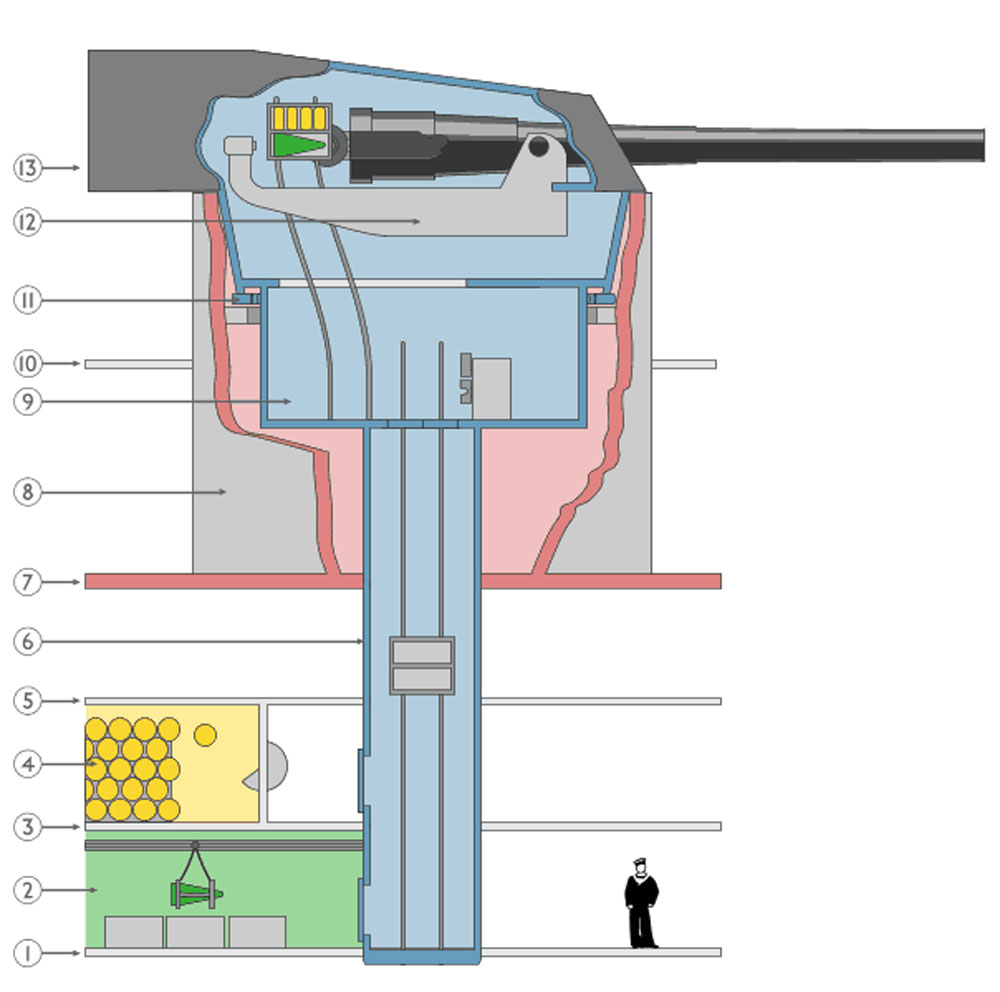High Seas Fleet Surrender 13 – North Sea Naval Battles
| < 12 – HMS Tarlair | Δ Index | 14 – The Battle of Jutland – May 1916 > |

There were some naval battles in the Mediterranean and around South America but the bulk of the German surface fleet were based in the North Sea opposed by the distant blockade of the British Grand Fleet.
This blockade also applied to merchant shipping. In retaliation, German U-boats attacked allied ships in the Battle of the Atlantic.
The High Seas Fleet conducted a number of hit and run raids in the North Sea, in an attempt to engage and pick off elements of the Grand Fleet.
On 6th December 1914, the targets were Scarborough, Hartlepool and Whitby. The attack resulted in 592 casualties, many of them civilians, of whom 137 died.
The raid had an enormous effect upon British public opinion, as a rallying cry against Germany for an attack upon civilians and in generating criticism of the Royal Navy for being unable to prevent it.

The attack became part of a British propaganda campaign. ‘Remember Scarborough’ was used on army recruitment posters and editorials in neutral America condemned it: “This is not warfare, this is murder.”


The first big engagement was on August 24th 1914 – the Battle of Heligoland Bight.
Several German ships were sunk when their turrets were struck resulting in magazine explosions.
This led to the adoption of flash-proof doors.
Their operation can be seen HERE
| < 12 – HMS Tarlair | Δ Index | 14 – The Battle of Jutland – May 1916 > |